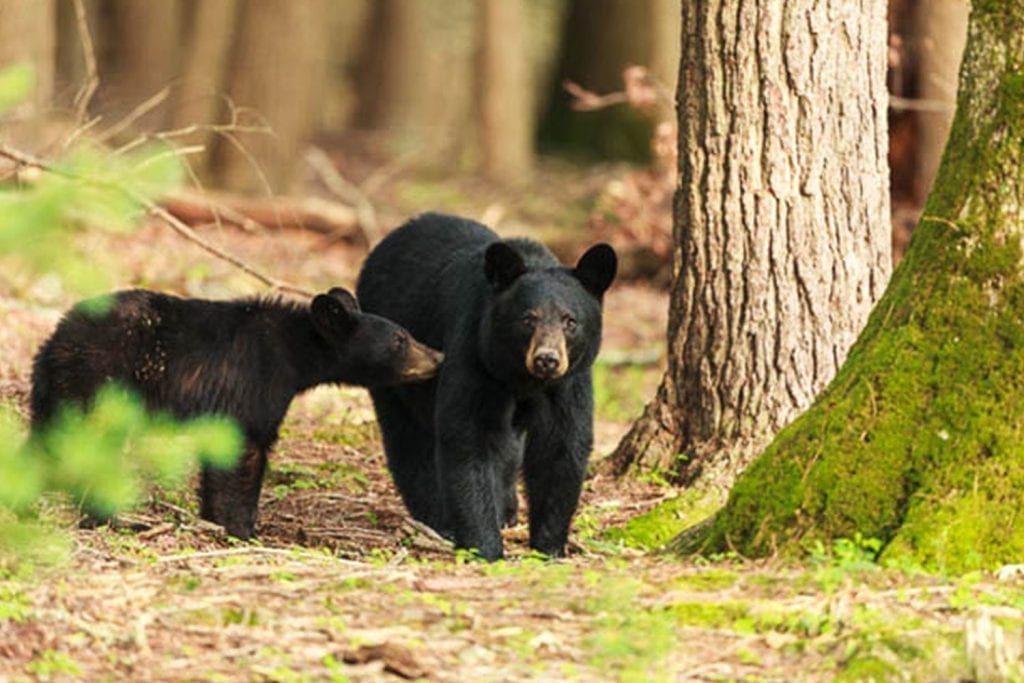Keeping Humans and Bears Safe
A summary of the information below can also be found in the brochure Living With Bears (PDF, 93 kB).
Frequently, humans unknowingly create potential food sources for bears. This may attract them into close proximity to residential areas and subsequently result in human-bear conflicts. Most conflict scenarios in New York can be resolved or minimized by removing or adequately securing whatever served to attract the bear.
Conflicts are often associated with activities not intended to attract bears, such as:
- feeding birds
- improperly storing garbage
- leaving messy grills and pet food outdoors
Bears are opportunistic feeders and will remember where they find easy food, and return to that location frequently. Intentional feeding of bears or repeated access to human foods without negative consequence can lead bears to become habituated (lose their fear of humans) and to become food-conditioned (actively seek out human foods). Habituated and food-conditioned bears may become bolder in their efforts the longer they are successfully able to access human foods. They will eventually become involved in human-bear conflicts. These food-conditioned bears are significantly more likely to be hit by cars or shot illegally by people who mistakenly perceive a threat to their own safety.
Report a Bear Problem. Contact your regional DEC wildlife office to report black bear-related damage.



